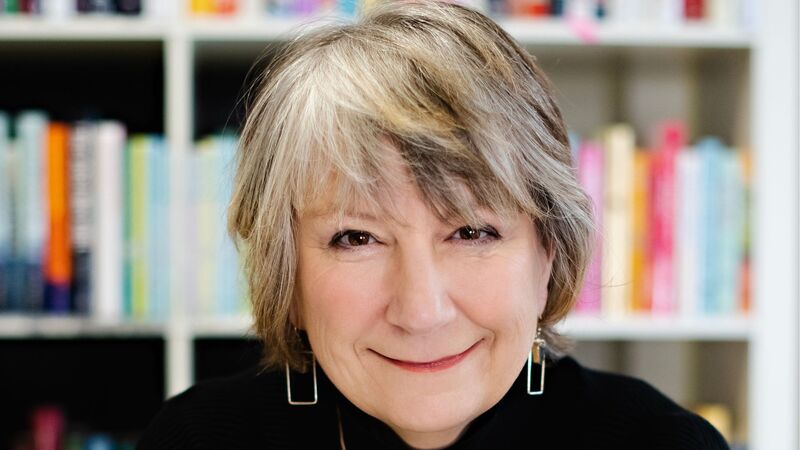You are viewing your 1 free article this month. Login to read more articles.
Bertelsmann to decide if Brexit affects UK location 'within a year'
Bertelsmann c.e.o. Thomas Rabe has said the company is "quite confident" of maintaining its "Intellectual Property hub" - meaning not just Penguin Random House and DK, but also its Fremantle Media and BMG businesses - in the UK after Brexit, and has the intention of doing so. However he has cautioned that this decision is "subject to closer scrutiny when we see what form Brexit takes" and said the company will make a "stay or go" decision for its IP rights business "at the latest in a year's time" when the impact of Brexit will be clear.
Speaking as Bertelsmann announced its results for fiscal year 2016, Rabe commented: "It all depends on the form Brexit will take. We have significant growth and investment in the UK and we continue to believe in the UK and its economic prospects. The UK is our hub for IP... We sell and license content internationally and for us to be able to continue to do that we need open markets. We need an attractive tax regime, and the absence of withholding taxes on interest, dividends or royalties. Brexit could mean withholding taxes would be imposed."
He said the labour issue was also very important. "Six per cent of our workforce in the UK is non-British and approximately half [of that 6%] is from the EU. It is important that they can stay and work [in the UK] and it is important to be able to bring management experts from abroad with the ability to work in the UK."
Rabe said Bertelsmann had already done an impact analysis and would go through another "thorough" analysis in the next month, with a "stay or go" decision for its IP rights business made at the latest in a year's time. "By then we will know what kind of Brexit [it will be] and how it affects our business."
He added: "The UK has a phenomenal creative industry. I can only urge the UK to build and maintain this powerhouse."
Bertelsmann's UK businesses are worth €1.5bn, he said.
Meanwhile Bertelsmann's plan to increase its stake in Penguin Random House to 70-75% will take "a number of months" as it and Pearson each appoint a bank to value the business. There is "a pretty long queue of investors" keen to partner on the remaining 25% stake and the preferred partner "would have to be long-term, with real interest for the business," Rabe said.
Including Verlagsgruppe Random House, Penguin Random House achieved a turnover of €3.4bn in fiscal year 2016, down from €3.7bn the previous year. The revenue decline was impacted by foreign exchange, including Brexit's impact in weakening the pound, said Rabe, as well as by lower e-book sales following price increases as a result of changed terms negotiated with digital partners including Amazon. The group's operating EBITDA fell by 3.6% to €537m (€557m last year). However Bertelsmann's book business increased its profit margin by 1% to 16%, fuelled by record profitability at PRH Worldwide. Bertelsmann praised its "strong bestseller performance in 2016, led by the multimillion-selling Paula Hawkins thriller The Girl on the Train and the Jojo Moyes novels Me Before You and After You.
Bertelsmann overall showed revenues stable at €17bn despite the negative exchange rate and portfolio effects, with operating EBITDA rising to a record €2.57bn (up from €2.49bn the previous year), despite start-up losses for digital and new businesses. Group profit rose to €1.14bn (up from €1.11bn last year).
The company said the figures "reflect Bertelsmann's success in becoming a faster-growing, more digital, more international and more diversified company."
Meanwhile Markus Dohle, c.e.o of Penguin Random House has said in a letter to staff that despite a year that “felt challenging for all of us” and declining year-on-year sales without a new breakout megaseller, 2016 was “successful for us financially -especially from a profitability perspective”.
Dohle went onto say that one of the most “crucial components” of its results was its wide range of initiatives directed toward preserving a “vital and vibrant” bookselling community, including its support of the traditional sales channels as well as growing ones.
“Above all, we have been bolstered by our commitment to print—even when it was in decline earlier this decade—while also taking full advantage of our technological savvy to increase the reach and discoverability of our book,” he said. “Regardless of format, driving consumer demand for our authors’ works by making them more discoverable remains a leading strategic priority for us. Across our territories we will continue to explore and introduce new ways to improve the visibility of our titles in stores and online.”
He added that a “major priority” for the group in 2016 that it would be “accelerating” in 2017 was its “drive for diversity” across retail, in the content it publishes and in the staff it hires.
“Diversity is essential in our timeless pursuit of our larger purpose—to create the future of books and reading—as we provide an unmatched platform for a full range of voices, ideas, and opinions,” Dohle said. “In these tumultuous times, this will be an even more urgent and important goal for our publishing programs as we serve readers across the spectrum.”












